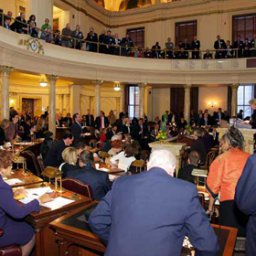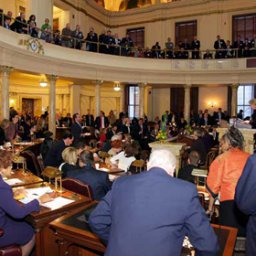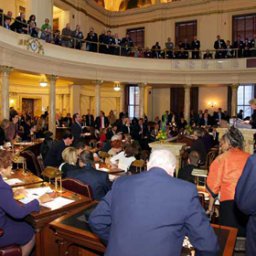
Bill Would Allow Mix of Voter Petitions and Municipal Governing Body Resolutions
TRENTON – Legislation sponsored by Senators Bob Gordon (D-Bergen) and Jim Beach (D-Camden) that would make it easier for municipalities to study the possibility of merging was today moved out of the Senate Community and Urban Affairs Committee.
This bill stems from a grassroots attempt to gain approval to form a study commission to examine whether Merchantville and Cherry Hill can consolidate municipal services. Earlier this year, a group of Merchantville and Cherry Hill residents undertook an effort to form a Municipal Consolidation Study Commission. In Merchantville, the residents collected signatures and sent a petition to the Local Finance Board, an affiliate of the Department of Community Affairs. In Cherry Hill, the residents submitted a resolution to undertake a consolidation study. According to the Board, however, current law requires the same method of application from each community. Consequently, the applications were rejected.
“For years we have heard talk from both sides of the aisle of the need to consolidate towns and school districts, but we continue to see barriers, such as this, that prevent towns from doing so,” said Gordon. “Rather than creating hoops for towns and residents to jump through, we need to be doing everything possible to encourage these kinds of studies and, if it makes sense, these kinds of mergers.”
The bill, S2465, would permit municipalities seeking to petition the Local Finance Board for the formation of a Municipal Consolidation Study Commission to obtain board approval either through voter petition or application by a municipal governing body, in any combination. Under current law, the Board may accept an application only if each of the municipalities uses the same procedure as the other. In other words, all towns must submit petitions from their residents, or, they must submit resolutions from their town councils or committees. There can be no mixing of the two.
Under the bill, if each municipality submitted its study commission application through its governing body, any consolidation plan ultimately proposed would be required to be approved by voter referendum in each of the municipalities.
“The wisdom of the Board’s decision has been debated, but that discussion misses the bigger point: Why is there something in our state law that would allow the Board to come to such a decision in the first place,” said Beach. “If we are truly serious about consolidation, there are various other measures we can take to encourage governing bodies and residents. Allowing a mixture of resident petitions and council/committee resolutions is a good, common-sense start. These communities want to start that conversation and there is no good reason to not let them.”
The legislation was approved 3-0 and now moves to the full Senate for further consideration.




